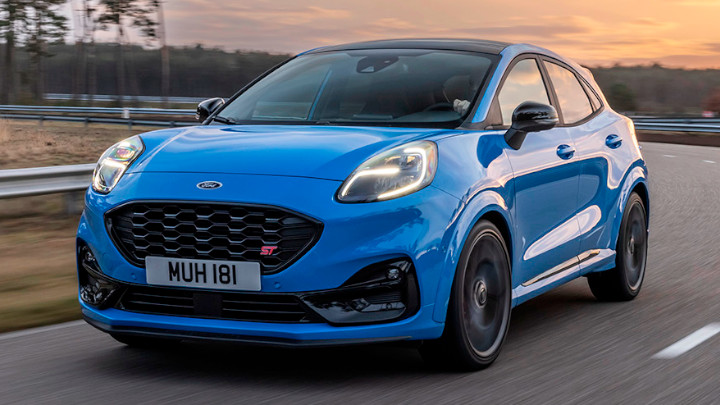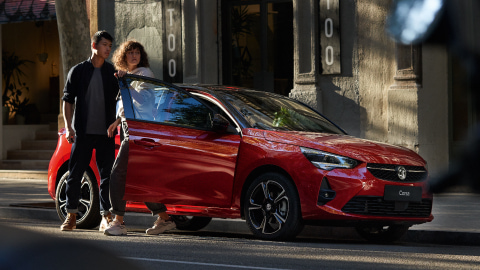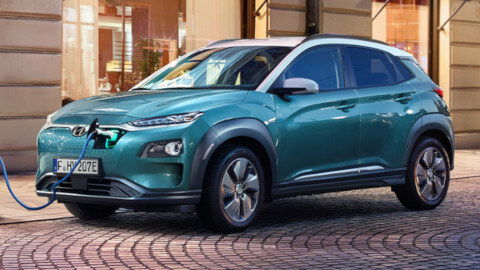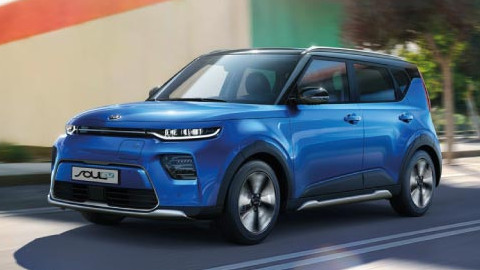UK New Car Market Sees Best Year Since Pandemic
05th Jan 2024
By Chris Russon
The UK new car market recorded its best year since the pandemic, as a strong December - up 9.8 percent - wrapped up the 17th month of consecutive growth.
The Ford Puma was the nation's favourite model selling almost 50,000 models followed by the British-built Nissan Qashqai on 43,321 with the Vauxhall Corsa coming third notching up 40,816 sales.
The Kia Sportage and the Tesla Model Y made up the rest of the top five models.
Overall, Volkswagen was Britain’s top car brand with 162,087 sales, giving the German brand an 8.52 percent share of the market.
Some 1.903 million new cars reached the road during 2023 – an increase of 17.9 percent, according to the latest figures from the Society of Motor Manufacturers and Traders.
The SMMT said growth was driven entirely by fleet investment as the previous year’s supply constraints faded and helped fulfil pent-up demand. Fleet deliveries rebounded by 38.7 percent year-on-year, while business registrations, a small proportion of the market, fell by 1.5 percent.
Private consumer demand remained stable at 817,673 units after a strong recovery in 2022, with cost of living pressures and high interest rates constraining growth.
While the overall new car market remains 17.7 percent below pre-pandemic levels, the surge in uptake compared with the previous year saw the value of new car sales jump more than £10 billion to around £70 billion, with 288,991 additional vehicles reaching the road.
In terms of vehicle type, buyers showed a continued preference for superminis, dual purpose and lower medium cars, which accounted for 29.8 percent, 28.6 percent and 28.2 percent of the market respectively. These three segments have been the most popular since 2013.
As the industry transitions away from fossil fuels, drivers continued to invest heavily in low and zero emission vehicles – which meant average new car CO2 fell by -2.2 percent to 108.9 g/km.
Hybrid electric vehicles (HEVs) recorded growth, up 27.1 percent to reach a 12.6 percent market share.
Plug-in hybrids (PHEVs) also enjoyed a strong year, with a 39.3 percent increase in registrations to account for 7.4 percent of the market.
Battery electric vehicle (BEV) uptake reached a record volume – up by almost 50,000 units with 314,687 new registrations and 2023 saw more BEVs reach the road than in 2020 and 2021 combined.
However, BEV volumes actually fell by 34.2 percent in the last month of the year - a reflection of an abnormal December 2022 when significant numbers of orders were able to be fulfilled in the month.
The next few months are also likely to be volatile for electric vehicles due to the regulatory uncertainties that have beset the market over the past few months – especially the last-minute deal on UK-EU Rules of Origin, which avoids tariffs on EVs but which has made planning difficult.
Overall, BEVs accounted for one in six new cars registered in 2023, with the majority taken by business and fleet buyers who benefit from compelling tax incentives.
In contrast, one in 11 private buyers chose a BEV, which has led to the SMMT calling for government action to stimulate the switch to EVs.
Since the end of the Plug-in Car Grant in June 2022, the UK is the only major European market with no consumer BEV purchase incentives – but it is now also the only market with mandated minimum targets for new ZEV registrations.
With mainstream consumer demand flat, the industry is calling on government to support private buyers by halving VAT on new BEVs for three years.
This temporary cut would give private consumers access to fiscal support at a level similar to that enjoyed by business buyers, enabling manufacturers to deliver larger volumes of zero emission vehicles.
Mike Hawes, SMMT chief executive, said, “With vehicle supply challenges fading, the new car market is building back with the best year since the pandemic.”
“Energised by fleet investment, particularly in the latest EVs, the challenge for 2024 is to deliver a green recovery. Government has challenged the UK automotive sector with the world’s boldest transition timeline and is investing to ensure we are a major maker of electric vehicles. It must now help all drivers buy into this future, with consumer incentives that will make the UK the leading European market for ZEVs.”
The SMMT said it anticipates 2024’s new car market to reach 1.97 million units, with 439,000 BEVs taking a 22.3 percent market share.














